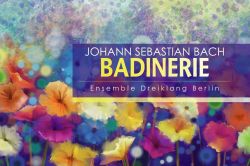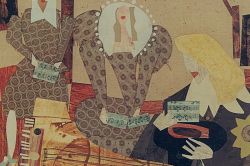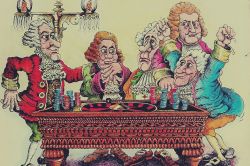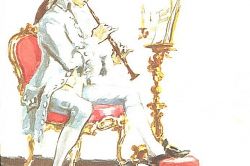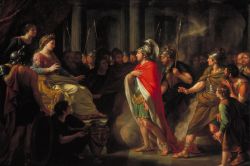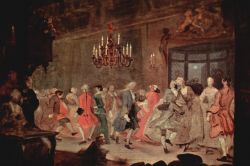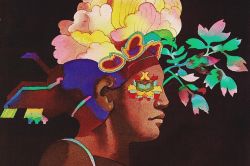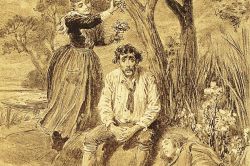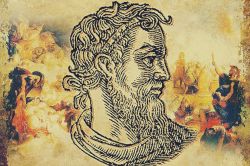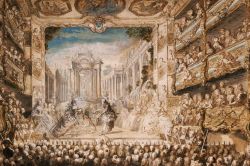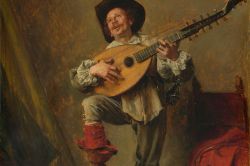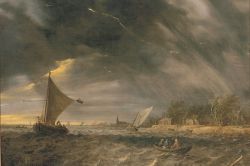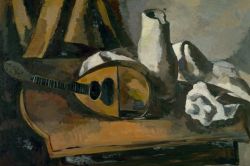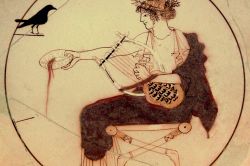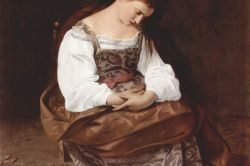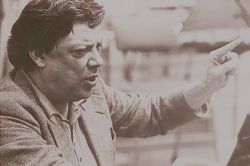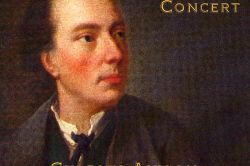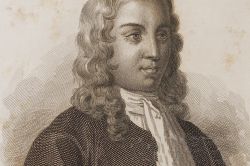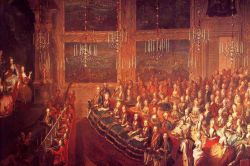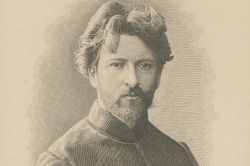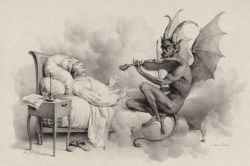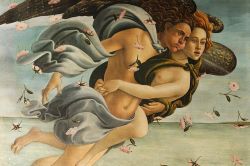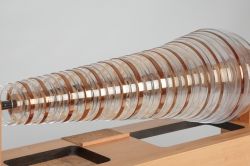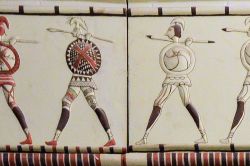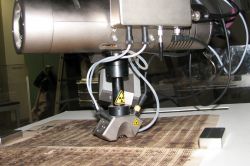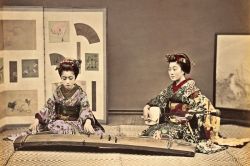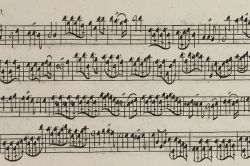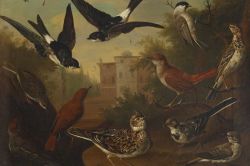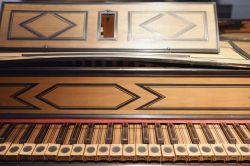Baroque
In Western music, the period that extends from 1600 to 1750 is known as the Baroque era.
Derived from the Portuguese barroco (oddly shaped pearl), the term baroque has been used since the nineteenth century. Characteristics of Baroque music are complexity, both structural and emotional, and overt ornamentation.
The Three Musicians by Diego Velázquez:
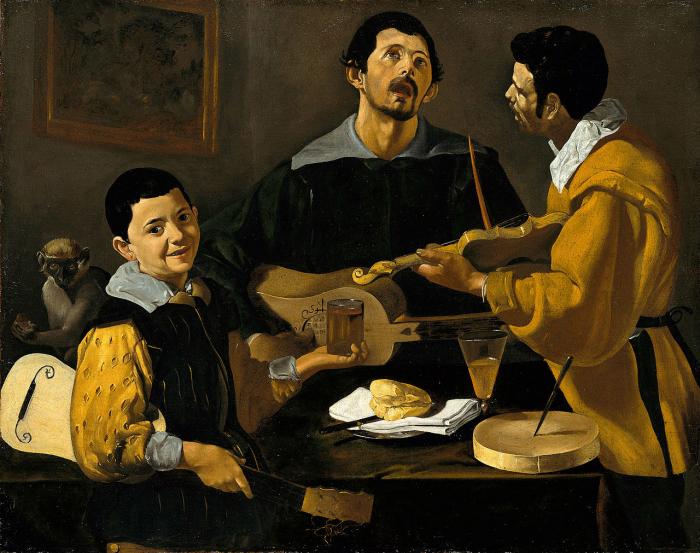
Composers of this era developed the method of writing music in clearly defined major and minor modes. Rhythm became fixed and continual. Contrast is an important ingredient in the Baroque composition, as well as the differences between loud and soft, solo and ensemble, various instruments and timbres.
Many of the forms identified with Baroque music originated in Italy, including the cantata, concerto, sonata, oratorio, and opera.
Flute Concert with Frederick the Great in Sanssouci by Adolph Menzel:
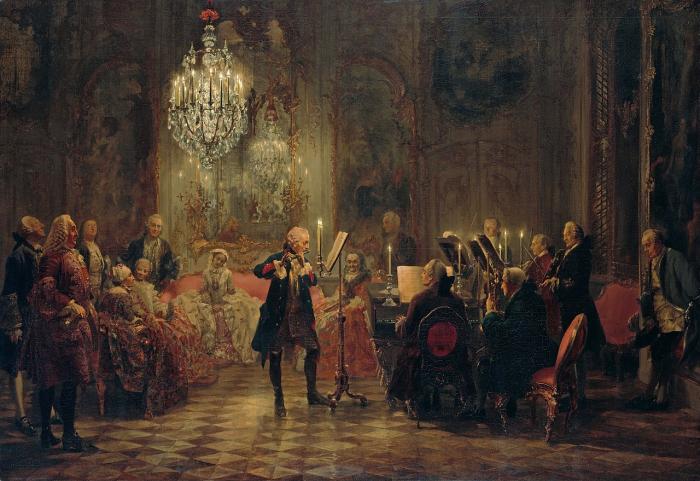
Major Baroque composers: Johann Sebastian Bach, Arcangelo Corelli, François Couperin, Giovanni Gabrieli, George Frideric Handel, Claudio Monteverdi, Giovanni Battista Pergolesi, Henry Purcell, Jean-Phillippe Rameau, Alessandro Scarlatti, Georg Philipp Telemann, Antonio Vivaldi.
